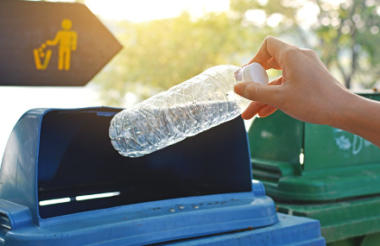Over £1bn could be raised for charity if a deposit return scheme for cans and bottles was introduced in the UK, according to the Campaign to Protect Rural England (CPRE).
The countryside charity is calling on the government to introduced a deposit return scheme, with the option for people to donate their deposit to charity instead of getting it back.
Today it published the findings of a survey which reveal that 20 per cent of people would donate deposits they’d paid on drinks cans and bottles all the time, and a further 19 per cent would do so most of the time. 34 per cent said they would donate at least some of the time.
The survey, which was carried out by ICM Unlimited, polled over 2,000 people. Using 20p as the rate for a deposit, the charity calculated that over £1bn would be raised for charities under this system.
Samantha Harding, litter programme director at CPRE, said: “Not only would the introduction of a UK-wide deposit return system put a stop to most of the environmental damage caused by drinks containers and boost recycling rates in excess of 90 per cent, it could also provide much needed funding for good causes across the country. It is fantastic and really heartening that so many people would be happy to donate their deposits in this way.
“An effective “all-in” deposit return system will bring an end to the growing disenchantment and scepticism around current recycling methods by doubling recycling rates. But it’s also evident that the deposit, as well as encouraging the right behaviour in terms of recycling, would allow for people’s generous natures to be realised when it comes to supporting others.”
The Scottish government has already announced that it plans to introduce a deposit return system for glass, plastic an aluminium drinks containers and CPRE has been calling for it to be extended across the rest of the UK.
CPR estimates that a UK-wide scheme would see 90 per cent of the 28 billion glass and plastic bottles and aluminium cans returned to be recycled. Currently the overall recycling rate in the UK is around 45 per cent.
|
Related articles












